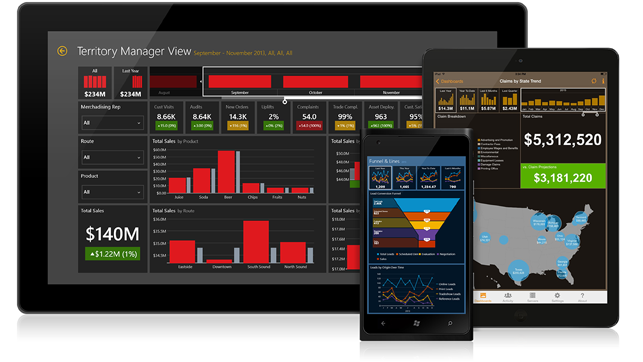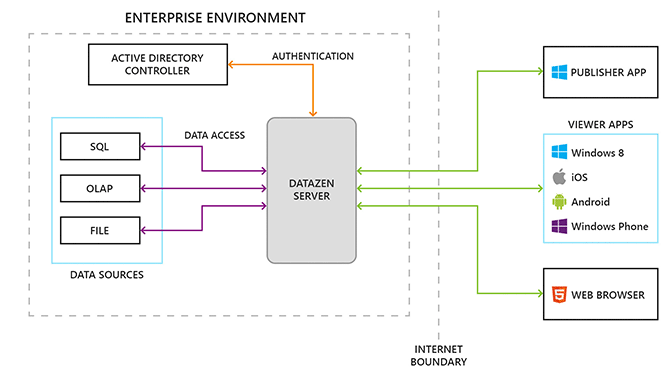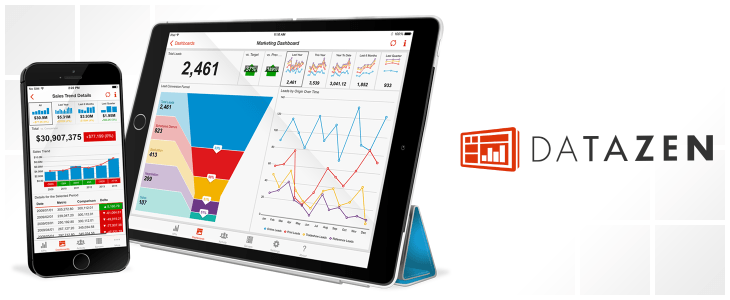Microsoft today announced that it has acquired Datazen, a mobile business intelligence and data visualization service.
Datazen, which launched about three years ago, allows businesses to create mobile dashboards from data in Microsoft Excel, but also from other cloud and enterprise database sources. To run Datazen, enterprises need to run Windows Server, IIS and .NET behind their firewalls, as well as Datazen’s server software.
The company offers apps for Windows, Windows Phone, iOS, Android and the web. According to today’s announcement, all of its products will remain available for the time being and the team will continue to work on Datazen’s server and client products.
Starting today, Microsoft SQL Server Enterprise Edition customers (version 2008 and up) can already download Datazen’s server software at no cost.
“Datazen is positioned as a mobile BI solution for customers who need a solution that is implemented on-premises,” the Datazen team writes today. “As such, it will complement Power BI, Microsoft’s cloud-based business analytics service.”

Microsoft will likely integrate Datazen’s technologies and expertise into its Power BI product, but it’s unclear what the roadmap for this integration looks like. If Microsoft’s latest acquisitions are any indication, there is a chance that the company will take some of Datazen’s mobile applications and rebrand them as Power BI for iOS or Android.

“This acquisition accelerates our Power BI strategy to help organizations create a data culture with easy-to-use, accessible tools to extract maximum value from data – from anywhere, on any device,” Microsoft cloud and enterprise director Kamal Hathi writes in today’s announcement. He also notes that SQL Server customers “love Datazen, because it is optimized for SQL Server Analysis Services and the overall Microsoft platform […].”
Microsoft has put quite a bit of focus on its business intelligence platforms lately as the amount of data that business create continues to increase rapidly. Today’s acquisition fits right into this trend.
